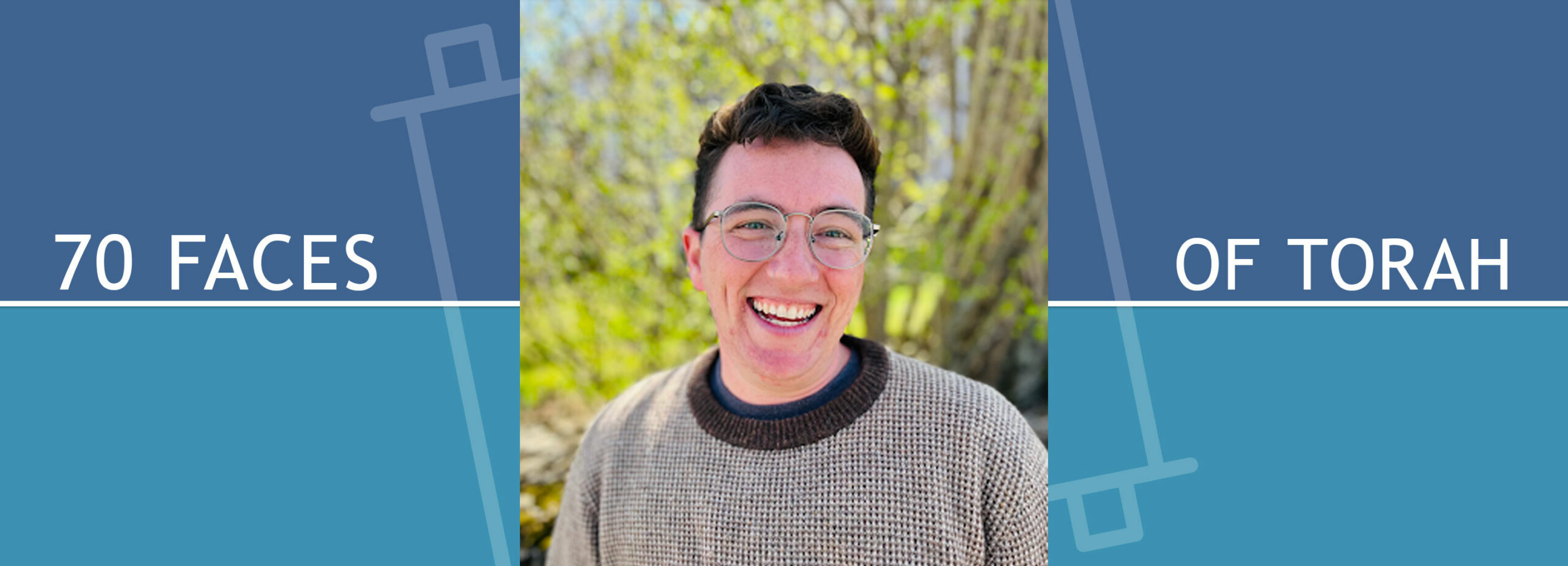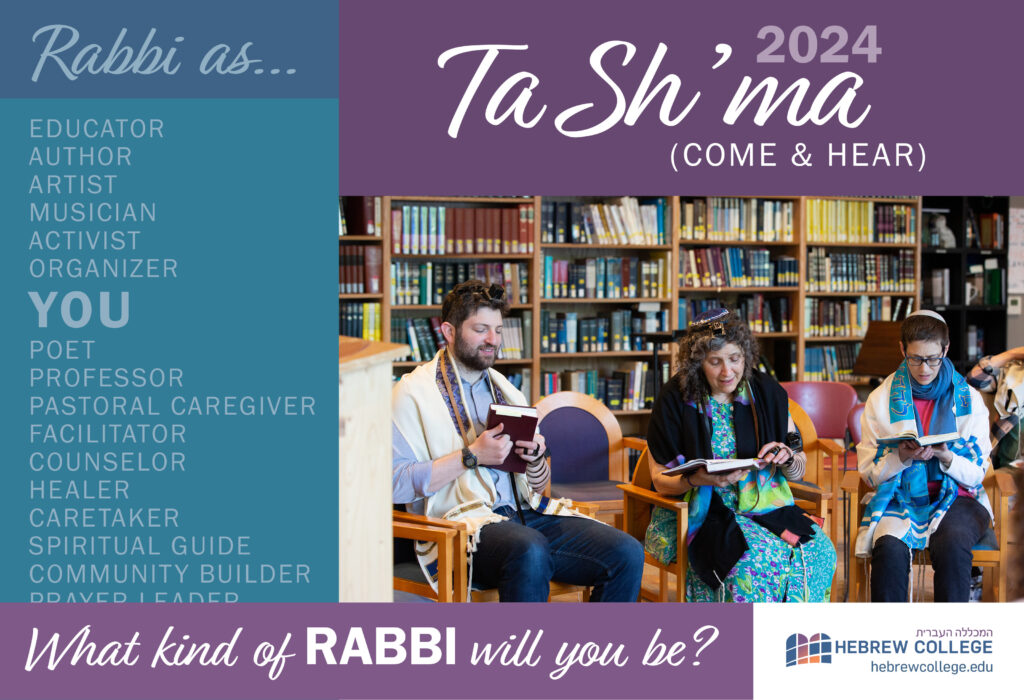Alumni Asking More of Noah

Parashat Noach Genesis 6:9-11:32
In 5785, a story about a world so full of evil that God sees no other path beyond total destruction is hard to handle. As our own world feels on the precipice of chaos, it is painful to imagine reaching a point where, as in the time of Noah, even HaShem gives up.
In the story of Noah, the only source of hope that God found in humanity was our title character: Noah himself. So one must ask, why? Who was Noah? What qualities could he have possibly possessed such that he alone, along with his family, merited to survive, that he was the only hope God saw for the future of creation? What made Noah such a tzaddik?
It turns out, our sages weren’t so clear on Noah’s virtues. Like so many things in our tradition, our ancestors passed down a lot of ambivalence about Noah.
In the Torah, we read two things about him: Noah was a tzaddik, whole in his generation: אִישׁ צַדִּיק תָּמִים הָיָה בְּדֹֽרֹתָיו—ish tzadik tamim haya b’doratav—and Noah walked with Godאֶת־הָאֱלֹהִים הִֽתְהַלֶּךְ־נֹחַ ׃—et haelohim hit’halakh Noah (Genesis 6:9).
In the Talmud, we get two interpretations of these qualities: Reish Lakish said, Noah was a tzaddik of all tzaddiks—whatever generation, he would have been the best. But Rabbi Yochanan says no. He was a tzadik in his generation. But in another generation? He wouldn’t have been that great (Sanhedrin 108a).
Rashi tells us that when Noah walked “with” God it was because, unlike other tzaddikim, he needed God’s help. He didn’t have a strong enough internal sense of righteousness to walk without God. Rashi compares him to Abraham, also a tzaddik, but one whose righteousness he saw as internal, self-generated. Noah, in contrast, needed God beside him to keep him on track (Rashi on Gen. 6:9).
But the biggest ambivalence about Noah comes from the Zohar, which points out the whole flood is actually named after him: Noah’s flood. What kind of tzaddik could he be if this destruction bears his name?
The Kedushat Levi, an 18th century Hasidic commentator, answers this way:
There are two types of tzaddikim who serve the Creator (barukh hu)—there is the tzaddik who serves God faithfully and believes that they have the power to direct the cosmos according to God’s will—as our sages , z’l, said in Moed Katan, ‘the Kadosh Barukh Hu decrees and the tzaddik annuls the decree for good.’
And, there is another type of tzaddik who serves the blessed creator but who is so lowly in their own eyes that they think to themself, who am I that I should pray and annul the decree? And therefore does not do so. Or, they think to themself, I am just like them—if God is saving me, God must be saving them too. And so they don’t pray on others’ behalf.
The Kotzker Rebbe, in the 19th century, calls this archetype, “A tzaddik in Peltz”—the tzaddik in the fur coat. When cold, this tzaddik wraps himself in a fur coat to keep warm, while the first type builds a fire—keeping himself AND those around him warm.
The Kedushat Levi continues that, though Noah was tzaddik tamim—a full, perfect person—he didn’t see himself as capable of annulling God’s decree. He is liable, despite his righteousness, for not praying to save the rest of the world with him. This, we learn, is why Rashi describes Noah as ‘limited of faith’.
Perhaps we can understand this critique in dialogue with another common quote from the Kotzker Rebbe: There’s nothing so whole as a broken heart.
Though I’ve heard this saying quite a bit, I honestly haven’t always understood what it means. In this context, though, it strikes me like this: Noah was so whole—so perfect—his heart didn’t break enough for the destruction of the world around him. Perhaps had he been a little more broken-hearted, a little more open-hearted, he would have been able to pray for them, too. He needed a little more brokenheartedness to complete his righteousness.
In this way, the lesson from Noah amidst the chaos is not to seek to be tammim—to be whole and unbroken—but rather to ensure that our hearts continue to break.
Some of our ancestors suggest that Noah’s path of righteousness is not actually one we should follow. Rather, we learn from Noah not to wrap ourselves in a cocoon of our own wholeness—whether out of excess humility, or passivity, or indifference to the suffering of others—but to engage with the world, even when it breaks our hearts.
Noah comes before the dispersions and divisions that follow the generation of the Tower of Babel. He comes before God’s call to Abraham and his descendents. He comes before the existence of the Jewish people or any other people. Our sages see in Noah a warning that calls out to us from a past that is as old as the human family. All of us are descendants of Noah. And even the most righteous among us can succumb to the temptation to protect ourselves and our families from the chaos around us.
Our sages—audaciously—ask more of Noah, and in doing so, ask more of us. Even if we are offered an ark, a shelter from the storm, the rabbis insist that it is still incumbent on us to advocate for the safety of others. Who knows what story we’d be telling if Noah had had the chutzpah to intercede on behalf of the rest of the world, to argue with God as Abraham did, instead of accepting the promise of personal protection as the waters rose around him?
Rabbi Frankie Sandmel (they/them), a 2022 graduate of the Rabbinical School of Hebrew College, runs BASE Bay where, together with their partner Elaina, they are building a vibrant, rooted, and resonant Jewish community out of their home in Oakland. In their free time, Frankie is a fellow with SVARA: A Traditionally Radical Yeshiva and they bake a lot of cookies.
Meet students and faculty at one of our fall open houses, Ta Sh’ma (Come & Hear) November 18 (in-person) or online (Dec. 8). Learn more and register.
Explore Graduate Programs Tamid Adult Learning Classes Support Our Work


